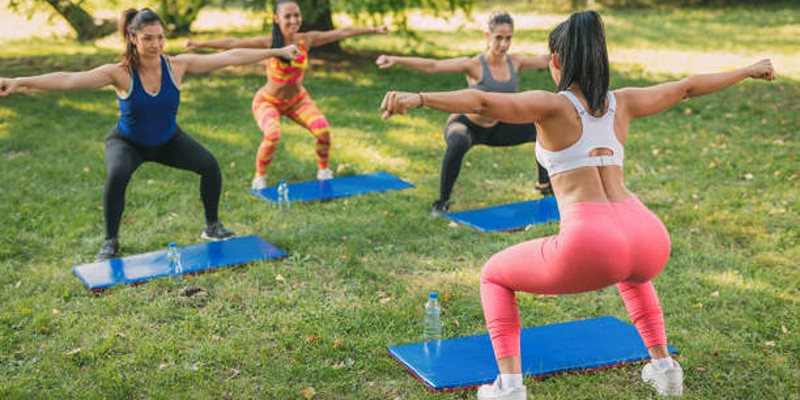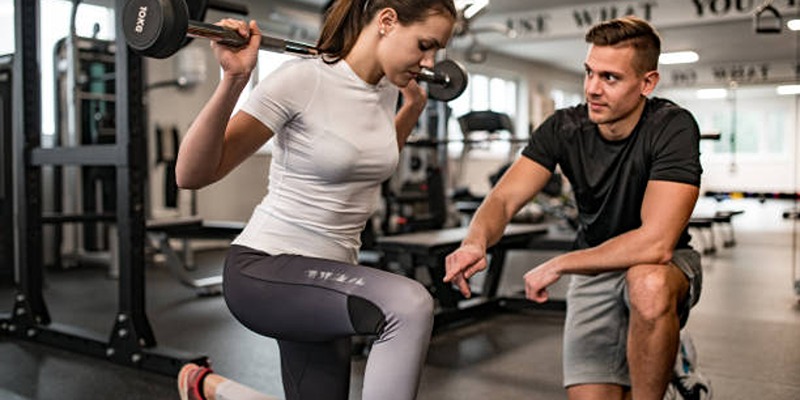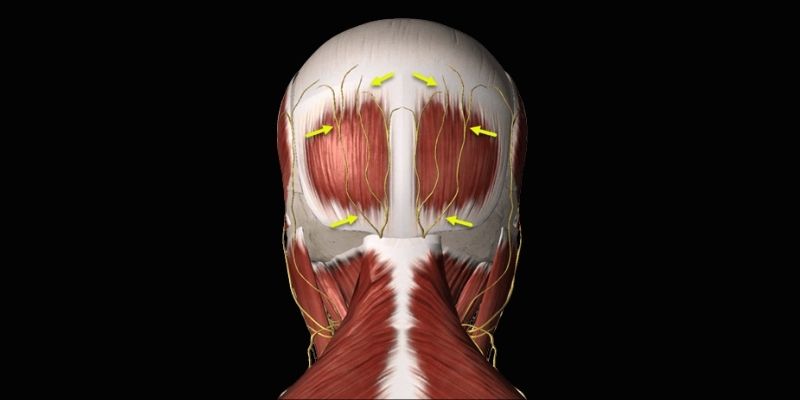A strong, toned core not only enhances your appearance but also improves balance, posture, and overall strength. With summer just around the corner, now is the perfect time to focus on your midsection. These three simple yet effective exercises will help you sculpt your core and feel confident all season long.
Why Core Strength Matters
Before jumping into the movements, it’s important to understand why core strength is essential:
- Improved Posture: A solid core helps maintain spinal alignment, reducing lower back pain and fatigue.
- Better Balance and Coordination: Core stability enhances how well you move, reducing your risk of injuries.
- Support for Daily Activities: From lifting groceries to playing with kids, core strength fuels real-life movements.
- Athletic Performance: Whether you jog or cycle, a strong midsection improves efficiency and endurance.
These reasons make core work not a seasonal necessity—but a year-round health priority.
Move 1: The Plank – A Classic for a Reason
The plank is a total core engager. It activates the transverse abdominis (deep core muscle), rectus abdominis (the “six-pack”), obliques (side abs), shoulders, and glutes.
How to Do It:
- Start in a forearm plank position with your elbows under your shoulders.
- Keep your body in a straight line from head to heels.
- Engage your abdominal muscles and glutes.
- Hold this position for 30–60 seconds, maintaining steady breathing.
Tips for Success:
- Don’t let your hips drop or raise too high.
- Avoid locking your elbows or arching your back.
- Focus on squeezing your glutes and tightening your abdominals.
Progression Options:
- Beginner: Start on your knees for modified plank.
- Intermediate: Extend time or try a high plank on your hands.
- Advanced: Add shoulder taps or leg lifts without twisting your torso.
Benefits:
The plank builds endurance and total body stability. When done properly, it strengthens more than just the abs—it tightens your entire midsection like a belt.
Move 2: Bicycle Crunch – Obliques in Action

This dynamic movement hits the rectus abdominis and both internal and external obliques. It’s perfect for carving the waist and enhancing rotational strength.
How to Do It:
- Lie flat on your back with hands behind your head.
- Lift your knees to tabletop position and shoulders off the ground.
- Extend your right leg out while twisting your torso to bring your right elbow toward your left knee.
- Switch sides in a pedaling motion.
Perform for 30–60 seconds in a controlled, steady rhythm.
Tips for Success:
- Don’t yank your neck—use your core to twist.
- Move slowly and with purpose to engage the muscles fully.
- Keep your lower back pressed to the floor.
Progression Options:
- Beginner: Keep your legs higher to reduce pressure on the back.
- Intermediate: Lower legs closer to the ground for more intensity.
- Advanced: Add a pulse twist for added contraction at each crunch.
Benefits:
The bicycle crunch is one of the most effective abdominal moves. It combines cardio-like movement with resistance, challenging coordination and torching the waistline.
Move 3: Leg Raises – Lower Abdominal Precision
Leg raises isolate the lower portion of the rectus abdominis, often the most challenging area to tone.
How to Do It:
- Lie on your back with your arms resting at your sides.
- Extend your legs and lift them straight up to the ceiling.
- Slowly lower them back down without letting them touch the floor.
Repeat for 10–15 reps with controlled form.
Tips for Success:
- Keep your back flat against the ground throughout the movement.
- Don’t use momentum—focus on slow, steady lifting.
- Exhale as you raise, inhale as you lower.
Progression Options:
- Beginner: Bend your knees slightly to reduce pressure on the lower back.
- Intermediate: Add a hip lift at the top of each raise.
- Advanced: Hold a light dumbbell between your feet or use ankle weights.
Benefits:
Leg raises target the area below your belly button, a zone that often gets overlooked. With regular practice, this move helps define and flatten the lower stomach area.
Core Workout Structure: Combine for Results
To tone and maintain your midsection, perform this 3-move core routine 3–4 times per week. Here's a sample format:
Exercise | Duration/Reps | Rest Between Sets |
Plank | 3 sets of 30–60 sec | 30 seconds |
Bicycle Crunch | 3 sets of 30–45 sec | 30 seconds |
Leg Raises | 3 sets of 10–15 reps | 30 seconds |
As you build strength, increase either time or repetitions gradually.
Complement With Lifestyle Choices
These exercises are powerful, but for a visible midsection, your lifestyle needs to align. Core definition relies on a combination of:
1. Smart Nutrition

Good nutrition is the foundation of a healthy lifestyle and core strength. Focus on whole foods like lean proteins (chicken, fish, eggs, or plant-based alternatives), a variety of colorful vegetables, whole grains like quinoa or brown rice, healthy fats from nuts and seeds, and fresh fruits. Avoid processed foods, limit added sugars, and cut back on refined carbs like white bread and pastries.
2. Hydration
Staying hydrated is essential for metabolism, digestion, and reducing bloating. Water helps your body flush out toxins and maintain optimal performance. Aim to drink at least 8 cups (64 ounces) of water daily, but increase your intake if you’re working out regularly, in a hot climate, or sweating a lot. Keeping a reusable water bottle nearby can make it easier to meet your hydration goals.
3. Cardiovascular Exercise
Cardio is key for burning calories and promoting overall fat reduction, which helps define your core muscles. Activities like walking, swimming, cycling, running, and dancing are all excellent options. Incorporate at least 20–30 minutes of moderate-intensity cardio three to five times a week. For added variety, try interval training (short bursts of intense activity followed by rest) to boost your metabolism and keep your workouts exciting.
4. Sleep and Recovery
Rest and recovery are just as important as exercise when it comes to building core strength. Your muscles repair and grow during rest periods, so it’s essential to prioritize recovery time. Aim for 7–8 hours of quality sleep each night to aid muscle repair, improve focus, and reduce stress.
Common Mistakes to Avoid
Even the best exercises can fall short if performed incorrectly. Here are common pitfalls and how to fix them:
- Rushing the Reps: Speed sacrifices quality. Always prioritize controlled movement.
- Holding Breath: Practice rhythmic breathing—inhale during release, exhale during effort.
- Neglecting Alignment: Keep your spine neutral and avoid arching your lower back.
- Skipping Recovery: Muscles grow and strengthen when they’re allowed to rest.
Focus on form, consistency, and listen to your body to avoid strain and maximize effectiveness.
Staying Motivated All Summer Long
Consistency is key. Here are some tips to stay committed through summer:
- Set Clear Goals: Whether it’s holding a plank for 1 minute or completing 15 perfect leg raises, measurable goals create momentum.
- Track Progress: Take weekly notes or photos to see visual and performance changes.
- Mix Up the Routine: Once the basic moves become easy, incorporate resistance bands or dumbbells to challenge your core in new ways.
- Celebrate Non-Scale Wins: Better posture, more stamina, and less back pain are all valid milestones.
Conclusion:
Toning your midsection isn’t about chasing an ideal image—it’s about building a stable, resilient, and healthy body from the center out. These three core-focused moves—plank, bicycle crunch, and leg raises—are simple yet transformative when performed with intention.












